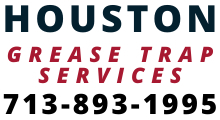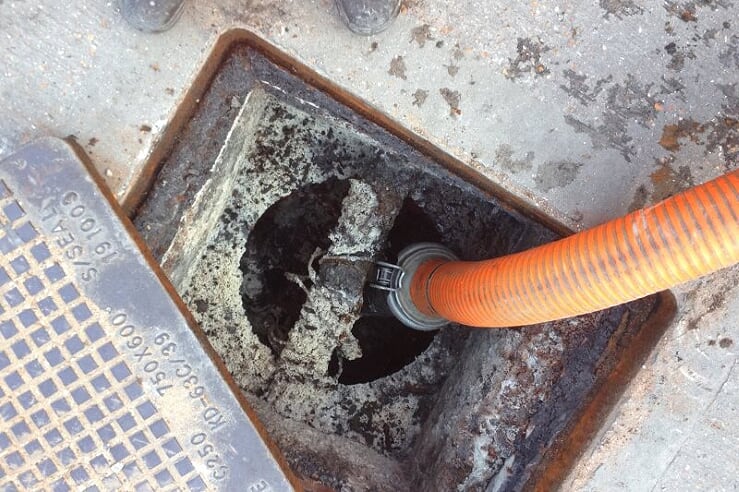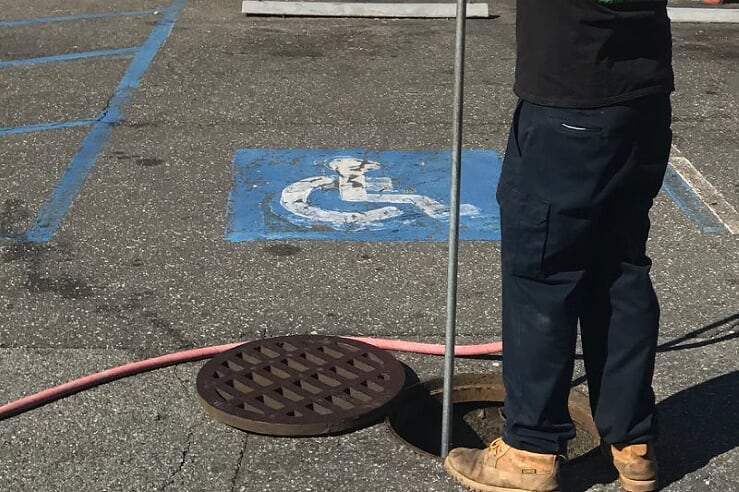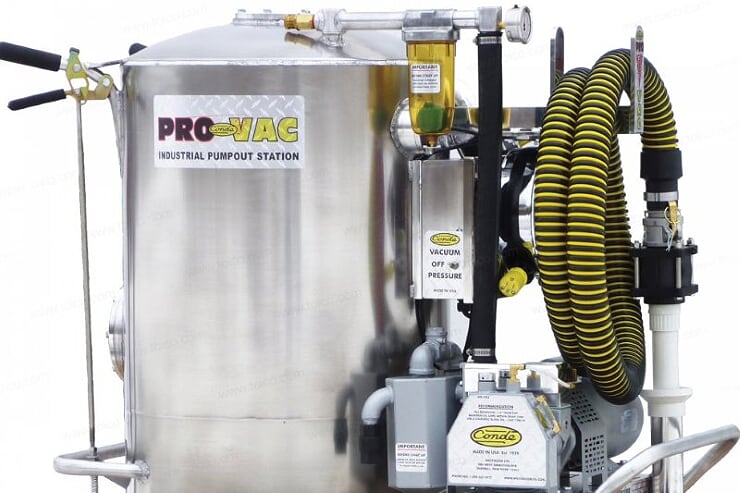GREASE INTERCEPTOR CLEANING IN HOUSTON
Houston Grease Interceptor Cleaning
Grease Interceptor Cleaning Services in Houston
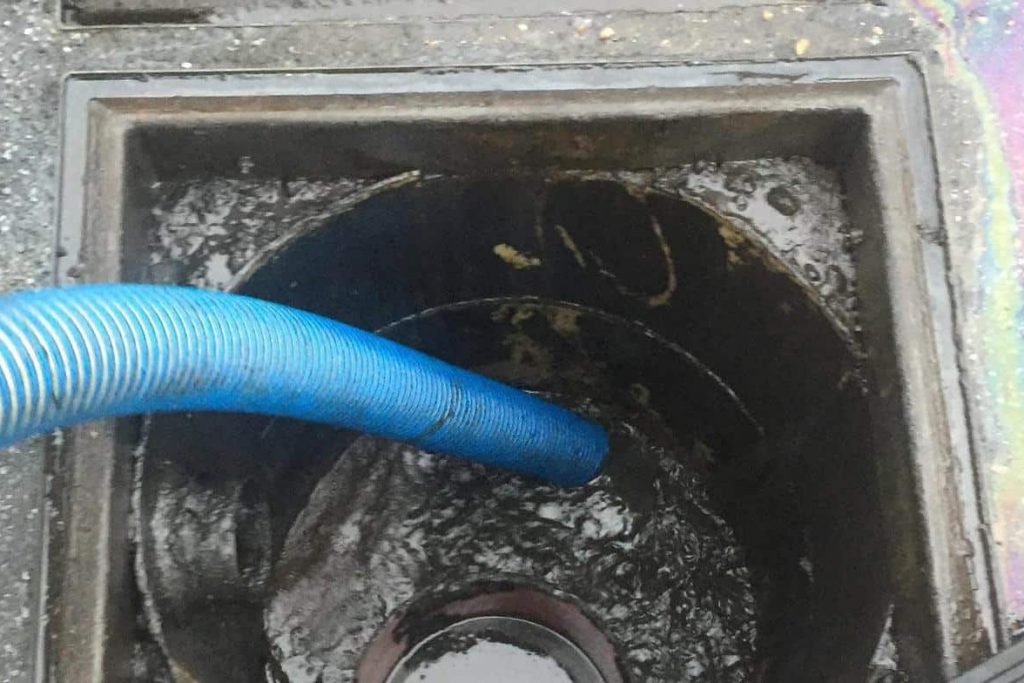
Restaurant sanitation and maintenance is often full of small, little-known tasks that are completely below the customer’s radar – and even as a manager or owner, keeping track of all of them can be increasingly difficult. Grease interceptor cleaning and disinfecting should never be one of the tasks that falls through the cracks; however, its consequences encompass everything from your restaurant’s license to potential foul smells, infectious outbreaks, and even the protection of the environment.
Grease interceptors, whether small hydro-mechanical contraptions or large gravity-based tanks, are a mandatory stage of oil and grease disposal. Their job is to temporarily trap fats, oils, and grease (or FOGS) produced by your kitchen and keep them away from the general water and sewage pipes. From there, they must be periodically extracted and disposed of – either at a specialized facility or recycling center.
Depending on the type and volume of cooking you do, your grease interceptors may need thorough cleaning every six to twelve months. This is usually done right after pumping the grease collection tank. For many restaurant owners or managers, it is frequently seen as a wasteful and time-consuming process. However, thorough cleaning and disinfection go a long way in preventing clogging and overflows, and therefore protect you from the hefty fines that often follow grease interceptor mishaps.
What does it take to properly clean grease interceptors?
Cleaning will depend on size and internal structure. There are two common types of grease interceptors used around Houston.
First are hydro-mechanical grease interceptors, which are the mainstay of smaller commercial kitchens and mom-and-pop restaurants. These are equipped with a small vented flow control that helps separate oil from water, and then temporarily traps the oil and grease in a small attached chamber under the sink.
Second, gravity grease interceptors, which tend to be much larger and are attached to a 500-gallon or even 1,000-gallon underground tank. These are often equipped with numerous chambers, manholes, and inlets that progressively filter out the thicker oils and fats, separating them from the soapy water that goes down the drain.
The more complex the internal structure of the interceptor, and the larger the tank, then the greater the protection they will offer you against overflows, but the more complex the cleaning process will be! For both types of interceptors, the first step before cleaning will be pumping. We can do this with a manual or engine-fueled pump, depending on the circumstances. The important thing at this stage is that the tank must be emptied completely. Many inexperienced cleaners often just skim the top off the tanks’ contents, which requires more frequent cleaning and gives grease a chance to solidify and nest inside the tank (with potentially yucky results).
After the tank is completely empty, we may still need to do some manual scraping to ensure no deposits are left behind in the corners of the tank. Next, we use hydro-jets (high-pressure water streams) to deep clean all the edges and disinfect them. This can be a time-consuming operation for large gravity interceptors, but for hydro-mechanical ones, it is also a delicate one; we don’t want to accidentally break or damage the vents or surrounding seals.
Fortunately, we have spent years learning how to do this, so there will be no need for any weird “experiments” on your premises!
Is it time to clean your grease interceptor?
Because of the wide array of available tanks used around Houston, there is no flat schedule we can recommend to our clients. After all, a standard interceptor may have a capacity of 750 gallons, but we have dealt with everything from 100 and 4,000 gallons.
While it may seem nearly impossible to fill up a tank that can fit hundreds of gallons, you should keep in mind that the goal is not ever to have it actually full; in fact, should a health inspector visit and find it has reached more than 30% of its total capacity, you may get a fine nonetheless.
For new businesses with irregular client demands, the only way to know for sure is to call for a quick inspection. We can provide you with a preemptive suggested schedule based on the type of food you serve and your average amount of clients per day. As your business grows and its rhythms become more predictable, we will be able to provide you with a more accurate schedule. Ideally, we will design a no-stress, no-fuss concierge plan for your Houston, Texas, kitchen.
Affordable & Reputable Grease Trap Services
